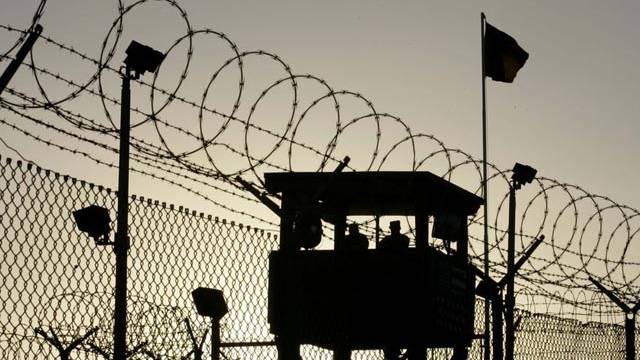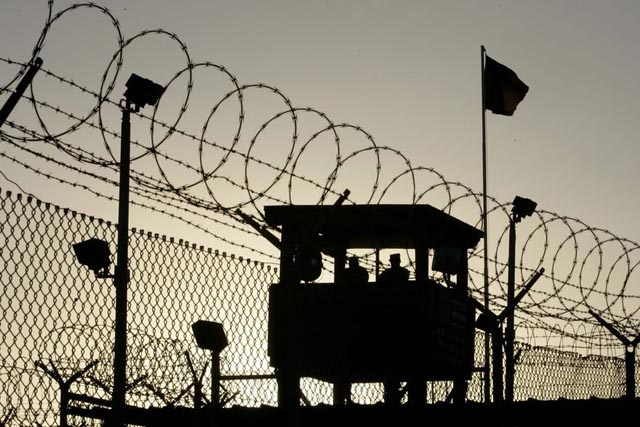Indefinite Detention: Political Washington Abolishes Due Process Protections
Source: globalresearch.ca
Human misery is growing. So is public anger. Rage across America and Europe reflect it. Gerald Celente explains the stakes, saying:"When people lose everything and have nothing else to lose, they lose it."
Draconian police state provisions were enacted to contain them. Hundreds of secret Federal Emergency Management Agency (FEMA) camps may hold them. Martial law may authorize it, claiming "catastrophic emergency" conditions. Senators blew their cover calling America a "battleground."
During WW II, loyal Japanese Americans were lawlessly detained. Today, social justice protesters and others wanting change are at risk. Political Washington’s targeting them to assure business as usual continues. Obama’s fully on board.
On December 14, the House passed the FY 2012 National Defense Authorization Act (NDAA). On December 15, the Senate followed suit - ironically on Bill of Rights Day.
Obama will sign it into law. The measure ends constitutional protections for everyone, including US citizens. Specifically it targets due process and law enforcement powers.
With or without evidence, on issues of alleged terrorist connections posing national security threats, the Pentagon now supplants civilian authorities. It’s well beyond its mandate.
Militaries exist to protect nations from foreign threats. Its Uniform Code of Military Justice (UCMJ) applies solely to its own personnel as authorized under the Constitution’s Article I, Section 8, stating:
"The Congress shall have Power....To make Rules for the Government and Regulation of the land and naval forces."
In America, state and local police, the Justice Department and FBI are responsible for criminal investigations and prosecutions. No longer on matters relating to alleged national security concerns.
Henceforth, America’s military may arrest and indefinitely detain anyone anywhere, including US citizens, based on suspicions, spurious allegations, or none at all if presidents so order dictatorially.
Law Professor Jonathan Turley expressed outrage, saying:
"I am not sure which is worse: the loss of core civil liberties or the almost mocking post hoc rationalization for abandoning principle. The Congress and the President have now completed a law that would have horrified the Framers."
"Indefinite detention of citizens is something (they) were intimately familiar with and expressly sought to bar in the Bill of Rights."
Other legal scholars agree about all alleged criminals having habeas, due process, and other legal rights in duly established civil courts.
Military tribunals are constitutionally illegal. Since June 2004, America’s (conservative) High Court made three landmark rulings.
In Rasul v. Bush (June 2004), the Court granted Guantanamo detainees habeas rights to challenge their detentions in civil court. Congress responded with the 2005 Detainee Treatment Act (DTA), subverting the ruling.
In Hamdan v. Rumsfeld, the Supreme Court held that federal courts retain jurisdiction over habeas cases. It said Guantanamo Bay military commissions lack "the power to proceed because (their) structures and procedures violate both the Uniform Code of Military Justice and the four Geneva Conventions (of) 1949."
In October 2006, Congress responded a second time. It enacted the Military Commissions Act (MCA). It subverted the High Court ruling in more extreme form.
Undermining fundamental rule of law principles, it gave the administration extraordinary unconstitutional powers to detain, interrogate, torture and prosecute alleged terrorist suspects, enemy combatants, or anyone claimed to support them.
It lets presidents designate anyone anywhere in the world (including US citizens) an "unlawful enemy combatant" and empowers him to arrest and detain them indefinitely in military prisons.
The law states: "no (civil) court, justice, or judge shall have jurisdiction to hear or consider any claim or cause for action whatsoever....relating to the prosecution, trial or judgment of....military commission(s)....including challenges to (their) lawfulness...."
On June 12, 2008, the High Court again disagreed. In Boumediene v. Bush, it ruled that Guantanamo detainees retain habeas rights. MCA unconstitutionally subverts them. As a result, the administration has no legal authority to deny them due process in civil courts or act as accuser, trial judge and executioner with no right of appeal or chance for judicial fairness.
Nonetheless, Section 2031 of the FY 2010 NDAA contained the 2009 Military Commissions Act (MCA). The phrase "unprivileged enemy belligerent" replaced "unlawful enemy combatant." Language changed but not intent or lawlessness to assume police state powers.
[...]
Read the full article at: globalresearch.ca























